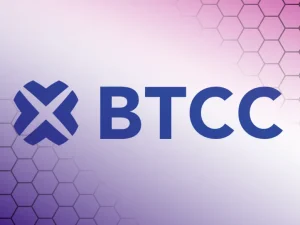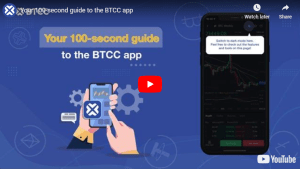What is Crypto Futures Contract? Guide For Dummies
In spite of the fact that derivative contracts have been around for almost a century, it was only recently that trading platforms began selling cryptocurrency pairs. The volatility of digital assets makes them a great financial instrument for futures trading, and they now make up a sizable portion of the portfolio of the ordinary investor.
Futures incorporate numerous well-established derivatives in addition to being one of the most actively traded crypto derivatives products. Many investors mistake futures for options, but these two securities couldn’t be more different in terms of their utility.
Crpto Futures Contract, Explained
In the beginning, futures contracts made sense for a wide variety of commodities, including food, oil, and metals. However, they quickly outgrew their initial utility and set out to control the entire global financial system, including digital currencies. Most commodity price quotes displayed on financial websites nowadays are for futures contracts, which typically have a monthly expiration date.
A futures contract is an agreement between two parties to acquire or sell an asset, such digital money, on a specified date at an agreed-upon price. A commodity, stock, or cryptocurrency may serve as the underlying asset being tracked by the contract. It’s a wager on the direction of prices in the future.
Open a long position on Bitcoin (BTC) by purchasing a Bitcoin futures contract with a monthly expiration date if, for instance, you anticipate that the price of BTC will rise by the end of the month. To the contrary, if you anticipate a rise in Bitcoin’s value, you would place a “long” bet on the cryptocurrency. The parties to a contract usually settle their differences and call it quits on the last day of the contract’s term.
There is a subset of bitcoin futures known as perpetual contracts, despite the requirement that a futures contract have an end date. The unique feature of perpetual contracts is that they never end. They function identically to regular futures, without the expiration and settlement dates.
A perpetual contract’s price tracks the current value of a coin and fluctuates quite similarly. The funding rate is the primary mechanism that allows for perpetual contracts, in which longs and shorts make ongoing payments to each other based on market conditions.
Types of Crypto Futures Contracts
Cryptocurrency investors can choose from a number of different futures contracts. It’s important to choose the right futures exchange because most platforms don’t offer all of the stated varieties.
Standard Futures Contracts
Regular bitcoin futures feature the same characteristics as a regular futures contract, such as an expiration date and a settlement process. In December 2017, CME Group and CBOE, both based in Chicago, were the first futures trading exchanges to offer Bitcoin futures contracts. Until the BTC price broke its all-time high of $20,000 in 2020, this was one of many factors that drove the BTC price to a record high.
As can be observed in its Bitcoin Futures Calendar, CME now offers multiple Bitcoin futures with varying maturity dates. At the time of contract termination, all payments are made in U.S. dollars. CBOE has also chosen to stop offering Bitcoin futures contracts, although with the recent uptick in interest in cryptocurrencies, this decision is likely to be reversed in the near future.
However, there are a few cryptocurrency markets that offer traditional futures contracts. Most of these exchanges, including Bybit, FTX, Deribit, and BTCC, provide quarterly Bitcoin futures contracts that are often traded in U.S. dollars. You can use them for swing trading because they are typically settled every three months.
Futures with Physical Delivery
Futures contracts that involve actual delivery of a coin also have expiration dates. New York Stock Exchange parent company Intercontinental Exchange (ICE) introduced them through its subsidiary Bakkt (NYSE). The only distinction between these and the normal futures discussed above is that cryptocurrency is physically delivered at settlement.
Only Bitcoin futures with physical delivery are available on Bakkt today, meaning that on the expiration date, Bakkt will transfer Bitcoin to people who purchased Bitcoin futures. This strategy, based on a cash-settled futures contract, hopes to increase Bitcoin circulation.
Perpetual Contracts
Another common kind of cryptocurrency futures is the perpetual contract. Due to the lack of an end date, perpetual contracts became popular on BitMEX and are now used by other large cryptocurrency exchanges such as BTCC, FTX, and BTCC.
Permanent contracts are able to stay as close to the spot price as possible because to funding. Traders agree to share profits based on the value of their open positions at predetermined times. Which party incurs costs and which party benefits is determined by the spread between the perpetual contract price and the spot price. Therefore, long traders compensate short traders when the funding rate is positive, and short traders compensate long traders when the funding rate is negative.
Bybit’s perpetual contracts are traded for USDT and other stablecoins, and funding payments are processed every eight hours.
Even while the market for crypto perpetual futures has expanded rapidly, it still has space to increase its trading volume in comparison to more traditional futures exchanges.
Trading activity for perpetual futures has plummeted, but they have not been as affected by the big decrease in cryptocurrency values in 2022. Average futures volume is still between $50 billion and $200 billion, according to data from coinglass.
Top centralized and decentralized exchanges will continue to compete fiercely over crypto futures, since the market for these contracts holds enormous potential.
Crypto Futures Trading: Pros and Cons
Futures on cryptocurrencies have exploded in popularity, and for good reason. Some benefits of crypto futures are listed below.
Convenient. When compared to trading actual cryptocurrencies, which necessitates access to a liquid market and a secure digital wallet, trading futures is simple even for beginners. This is why cryptocurrency futures trading volumes are typically twice as huge as spot trading volumes.
Superior possibility for gain. Leveraged cryptocurrency futures trading typically results in larger profits. You can trade on Bybit with a leverage of up to 100x, which means you can invest in a $1,000 asset with just $10. You should be aware that the potential for loss increases along with the benefits of applying leverage.
Adaptable approaches to the stock market. Especially for intraday trading, the use of trading methods is greatly enhanced when crypto futures are traded instead of the underlying cryptocurrency. Additionally, there are no stoppers for shorting while using cryptocurrency futures. Therefore, you have more flexibility to employ various trading techniques in order to achieve your profit objectives.
Futures, in contrast to perpetuum futures, do not have a funding rate, and their prices are typically in contango, meaning that they are higher than the current spot prices. Because of this, a cash and carry arbitrage opportunity arises, which is a market-neutral strategy that involves taking both a long position in the spot market and a short position in futures. As the futures price approaches the spot market price on the settlement date, investors can count on relatively risk-free gains regardless of the state of the market or its volatility.
Risks of Crypto Futures Trading
A number of industry leaders have voiced their doubts about the feasibility of a futures market for cryptocurrencies since they believe the underlying business is not yet developed enough. Some skeptics worry that Bitcoin’s volatility will affect other futures markets.
Since most crypto futures platforms do not keep their users’ cryptocurrencies, they are less vulnerable to cyber attacks than traditional crypto exchanges. For instance, futures trading on Bybit is quick and easy.
However, novice traders should be aware of the dangers associated with the market’s inherent volatility, the market’s 24-hour nature, poor futures trading tactics transferred directly from more established markets, and leverage levels greater than are typically recommended.
Conclusion:
Futures markets for cryptocurrencies are favored by both institutional and retail investors because of its decreased friction and security risks compared to the spot market.
The derivative market for cryptocurrencies is diverse, but crypto futures continue to dominate over crypto options. The buyer of a call option or a put option has the right but not the duty to purchase the underlying asset at a specified price and within a specified time frame.
Both derivatives give traders the chance to try out novel trading formats while also protecting themselves from the potentially disastrous effects of market volatility.
Why trade crypto futures on BTCC?
- Largest variety of futures: Daily, weekly, quarterly&perpetual
- Flexible leverage from 10x to 150x
- Lowest trading fees 0.03%
- Industry-leading market liquidity
- Plenty of campaigns to win exciting rewards









